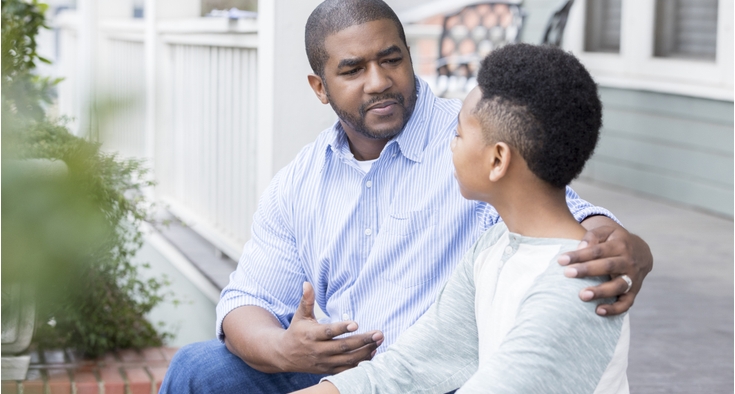There’s an easy and highly effective way you can prevent your adolescents and teens from getting certain cancers: with a vaccine. The Centers for Disease Control recommends this vaccine for every boy and girl at age 11 or 12 – and possibly earlier.

Dr. David Rainey of Novant Health Robinhood Pediatrics & Adolescent Medicine in Winston-Salem explains why vaccinating your child against the human papillomavirus (HPV) is a no-brainer.
When should parents get the HPV vaccine for their kids?
Before their kids are sexually active. The CDC recommends that parents begin discussing the vaccine with kids when they’re 9 or 10. Some parents may opt to vaccinate their kids at that age. But definitely by the time your child is 11 or 12.
The vaccine, Gardasil, is given twice – the first dose one year, and the second a year later. We recommend including it with the other vaccines kids are getting before they enter middle school. So, one at age 11 and the second at age 12, and that’s it. If teens finish the two doses before age 15, they’re done. If not, they need a third dose. The two (or three) doses are good for a lifetime.
Find and book the expert care you need in seconds
How is HPV spread?
Through sexual contact, and that includes oral sex.
But it can’t be passed through kissing or sharing the same straw?
No.
How prevalent is HPV?
According the CDC, some 79 million Americans are infected with HPV. Research suggests that more than 150 types of HPV exist. Fourteen of these are considered high-risk strains.
Some parents may worry that getting their kids the HPV vaccine gives them a free pass to have sex at an early age. Do you ever see that in your patients?
The data show just the opposite. Health education makes teens less likely to have sex when they’re young. Maybe in the early days of the vaccine, some parents had that concern. But the vaccine has been around since 2006. (The FDA approved it for use in females between the ages of 9 and 26 then.) When you give parents the data, they generally decide it’s a good idea to vaccinate.
I have asked parents: “If there were a vaccine that could prevent breast cancer, wouldn’t you do that for you child?” That’s what the HPV vaccine is: It’s cancer prevention.
What cancers can HPV lead to?
Cervical and vulvar cancer in females. Penile cancer in males. And anal cancer for both. Also, there are head and neck cancers linked to HPV.
Cervical cancer is the fourth most-common cancer in women worldwide. It had previously been No. 2. More than 9 out of 10 instances of cervical cancer are caused by HPV, and almost all cervical cancer cases can be prevented by HPV vaccination.
How effective is the vaccine at preventing cancer?
The vaccine doesn’t cover all types of HPV. GARDASIL 9, the latest iteration of the vaccine, protects against the nine most common disease-causing strains of HPV. But when you look at the data, you realize the efficacy at preventing cancer from those HPV strains is amazing.
HPV can be dormant for years, right?
Right. You can have the HPV virus but show no signs of it – no clinical lesions.
And that – the fact that you could have it and transmit it without your knowledge – makes the vaccine even more important.
Exactly.
Are parents of boys as apt to get the vaccine for their sons as they are for their daughters?
There was less acceptance at first; it was a harder sell. But today, parents of boys are as likely as those of girls to vaccinate. Every once in a while, you’ll find a family that doesn’t think it applies to them, but it does. Everyone is at risk.
When teens reach 18, they can make the decision on their own.
Anything else you’d like to share?
Yes. There is this misconception that the Gardasil vaccine has a lot of side effects, and that is simply not true. It is just as well tolerated as the very common Tdap, or tetanus booster.







